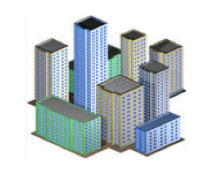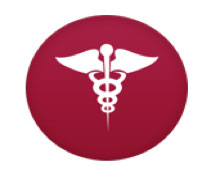Menu of Services
pay it forward - $0
The Courage Collective is committed to being affordable to all leaders who want to be more courageous and create social change. If you are unable to afford one of our design labs and have an annual operating budget under $500,000, we will find a way to help at no charge. Please pay it forward when you’re able. Based on our teams’ availability and capacity.
DIAGNOSIS - $2,750
A Courage Collective advisor will interview you to learn about your organization, capacity and restrictions. They will help you to identify the problem with clarity, gain insight about opportunities and threats and will quickly return to you customized, actionable and innovative recommendations for solutions.
RAPID DESIGN LAB - $5,750
A purposefully selected team of Courage Collective designers, researchers and strategists will collaborate quickly over a few days to:
- Synthesize findings from research and observations of your challenge
- Develop actionable and manageable solutions
- Present you a road map to implementation of the solution
INDEPENDENT IMMERSIVE LAB - $18,000
The Courage Collective will collaborate with you and your team over six weeks to:
- Fully define the problem through a comprehensive research and knowledge-gathering phase
- Facilitate the design process with your team and/or stakeholders from ideation to the iteration of solutions
- Guide your team through implementation scenarios
- Present you with an organized final document of the design experience, outcome and implementation plan to share with stakeholders and funders
- Present you a tutorial of the design process for future use of problem solving and innovating
COLLECTIVE-LEAD LAB - $50,000
Over the course of 12 - 14 weeks the Courage Collective will independently handle all aspects of the design process on your behalf, including:
- Research and observation of the design problem
- Exploration of those affected by the problem
- Global investigation of trials and best practices to learn from
- Organize insights and research to present to the design participants
- Convene experts, innovators and strategists to the design process
- Lead the design process
- Organize the actionable and manageable solution and implementation plan
- Document the design process to share with you, your stakeholders and funders
- Present our findings and strategies to your team, stakeholders and board of directors
Cases of Human Centered Design and Social Impact
| Client | Challenge | Affected | Solution | Impact |
 |
Homelessness and Panhandling | Retail Establishments Visitors Residents Marginalized Residents |
A collectable street newspaper microenterprise that invites personal relationship development, provides above poverty level incomes, diverts police interventions, promotes sporting events, entertainment and restaurants, highlights local artists and incents success with permanent jobs | Reduction of Homelessness Reduction of Panhandling Cost Savings to Police Promotes Retail Businesses City Branding & Promotion |
 |
Urban Health Outcomes | Low Income Residents | Engineer an entrepreneurial business unit inviting innovation, partnerships and sponsorships for improving urban health issues. Develop ongoing social design labs within the organizational structure to produce unique solutions and harness the strength of those most committed to population health. | Improved Health Outcomes Innovative Health Delivery Alternative Revenue Streams |
 |
Impact Of Community Resources | Low Income Residents | Assess the basic needs of 211 callers seeking crisis assistance and align customized interventions that promote elevated levels of self-sufficiency using community resources, personal readiness and assets. | Reduction of Poverty Increased Value of 211 |
 |
Inconsistent Utility Payments | Low Income Residents Utility Ratepayers Taxpayers |
Align a low income payment plan, selfsufficiency coaching and energy education to eligible customers that results in increased awareness of home energy use, consistent monthly bill payments and reduced reliance on public assistance. | Reduction of Poverty Reduction of Utility Shutoffs Increased Revenues Reduced Uncollectable Debt |
